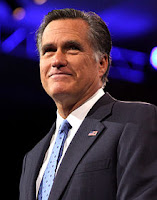So, to pick up where I left off on last week's post, Waiting for the Firesigns, which featured the first of three separate tracks that originally appeared on side 1 of the comedy recording group Firesign Theatre's first album, Waiting for the Electrician or Someone Like Him, the second track on side 1 is called "W. C. Fields Forever" for reasons that are less than apparent.
Of course, W. C. Fields was a 20th century comedy icon whose career path took him from vaudeville to Broadway to Hollywood. Here's a scene where he's playing the part of a con man turned sheriff/bartender from the 1940 film, My Little Chickadee:
And of course, "...Fields Forever" is an allusion to The Beatles' song, "Strawberry Fields Forever," originally released in 1967, a song that many would argue defined psychedelic rock (at least that's what it says on the song's Wikipedia entry):
So, put them both together and you get "The 'Lazy O' Magic Circle Dues Ranch and Collective Love Farm," which is where "W. C. Fields Forever" takes place. It all fits together in that California was very much a part of the wild west, the western genre was enormously popular through the 60s so it was a big part of the Hollywood film industry, the Hippy movement at the heart of 60s counterculture was centered in San Francisco, and of course Firesign Theatre was a Californian quartet.
This track, then, merges various aspects of California counterculture with western generic formulas and conventions (which also were used in the first track), as the Firesigns make fun of Hippy communes, health food, yoga, Eastern mysticism and spirituality, the whole guru thing that The Beatles got into for a while (while also incorporating direct quotation of Beatles lyrics, a practice continued in the Nick Danger radioplay on their second album), and provide the answer to the question Elvis Costello would later pose, what's so funny about peace, love and understanding?
And, as you would expect, there's also a good number of references to psychedelic drug culture in this bit, with the commune being led by a character clearly based on Timothy Leary, counter culture leader and former Harvard psychology professor, who was the Johnny Appleseed of tripping via LSD (Leary claimed that his famous slogan, Tune In, Turn On, Drop Out, was given to him by Marshall McLuhan, a claim that McLuhan denied). The character's name is Tiny Doctor Tim, and in case you think this all very obvious, you are probably of a certain age, so understand that when I mention Timothy Leary in my undergraduate new media classes (in the 90s he became a big booster for virtual reality), no one knows who he was.
"W. C. Fields Forever" clocks in at a little over 7 1/2 minutes, so it stands as one of the shorter examples of Firesign Theatre's soundscapes, this one with less of a sense of acoustic space than some of their other pieces, and also less of a coherent radioplay, much more episodic, but certainly an example of how they were able to take the then relatively new innovations of sterophonic sound and multitrack recording on magnetic tape, and the "fun with audio" genre (at least that's what I call all of the 60s recordings that were all about playing with sound) to an entirely new level. It's not their best work, but still worth a listen. And so, away we go...
"W. C. Fields Forever" stands as a send up of the 60s and also a product of the 60s, the album it appears on, Waiting for the Electrician or Someone Like Him, having been released in 1968. It's a product of its times, the humor is in many ways topical, and by the time I first listened to the album as a college student in the mid-70s, I didn't get all of the references and jokes. But it didn't matter then, or now (although I think I do get all or most of it at this point), because Firesign Theatre's form transcends their content. As I've noted previously, their recordings are more like music, rather than like simple stand-up routines or straightforward comedy acts. But if you like the 60s or are curious about the counterculture, this track is a great way to get a feel for it all.
Of course, W. C. Fields was a 20th century comedy icon whose career path took him from vaudeville to Broadway to Hollywood. Here's a scene where he's playing the part of a con man turned sheriff/bartender from the 1940 film, My Little Chickadee:
And of course, "...Fields Forever" is an allusion to The Beatles' song, "Strawberry Fields Forever," originally released in 1967, a song that many would argue defined psychedelic rock (at least that's what it says on the song's Wikipedia entry):
So, put them both together and you get "The 'Lazy O' Magic Circle Dues Ranch and Collective Love Farm," which is where "W. C. Fields Forever" takes place. It all fits together in that California was very much a part of the wild west, the western genre was enormously popular through the 60s so it was a big part of the Hollywood film industry, the Hippy movement at the heart of 60s counterculture was centered in San Francisco, and of course Firesign Theatre was a Californian quartet.
This track, then, merges various aspects of California counterculture with western generic formulas and conventions (which also were used in the first track), as the Firesigns make fun of Hippy communes, health food, yoga, Eastern mysticism and spirituality, the whole guru thing that The Beatles got into for a while (while also incorporating direct quotation of Beatles lyrics, a practice continued in the Nick Danger radioplay on their second album), and provide the answer to the question Elvis Costello would later pose, what's so funny about peace, love and understanding?
And, as you would expect, there's also a good number of references to psychedelic drug culture in this bit, with the commune being led by a character clearly based on Timothy Leary, counter culture leader and former Harvard psychology professor, who was the Johnny Appleseed of tripping via LSD (Leary claimed that his famous slogan, Tune In, Turn On, Drop Out, was given to him by Marshall McLuhan, a claim that McLuhan denied). The character's name is Tiny Doctor Tim, and in case you think this all very obvious, you are probably of a certain age, so understand that when I mention Timothy Leary in my undergraduate new media classes (in the 90s he became a big booster for virtual reality), no one knows who he was.
"W. C. Fields Forever" clocks in at a little over 7 1/2 minutes, so it stands as one of the shorter examples of Firesign Theatre's soundscapes, this one with less of a sense of acoustic space than some of their other pieces, and also less of a coherent radioplay, much more episodic, but certainly an example of how they were able to take the then relatively new innovations of sterophonic sound and multitrack recording on magnetic tape, and the "fun with audio" genre (at least that's what I call all of the 60s recordings that were all about playing with sound) to an entirely new level. It's not their best work, but still worth a listen. And so, away we go...
"W. C. Fields Forever" stands as a send up of the 60s and also a product of the 60s, the album it appears on, Waiting for the Electrician or Someone Like Him, having been released in 1968. It's a product of its times, the humor is in many ways topical, and by the time I first listened to the album as a college student in the mid-70s, I didn't get all of the references and jokes. But it didn't matter then, or now (although I think I do get all or most of it at this point), because Firesign Theatre's form transcends their content. As I've noted previously, their recordings are more like music, rather than like simple stand-up routines or straightforward comedy acts. But if you like the 60s or are curious about the counterculture, this track is a great way to get a feel for it all.























